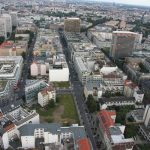How will smart cities avoid data overload?
How will smart cities avoid data overload?

Smart cities will soon churn out so much information that flash memory data centers might be the only way to control the environmental footprint.
In an essay on IT ProPortal, NetApp’s Laurence James makes the case for smart cities switching to solid state drives (SSD), or flash memory, in their quickly growing data centers. NetApp is a Sunnyvale, California-headquartered maker of data storage and management systems.
Gartner predicts 1.6 billion connected devices will be hooked up to the larger smart city infrastructure by the end of this year.
And while we are in currently in the relatively early days of smart cities, fears are spreading that we could soon be overwhelmed in a data tsunami from these fast-proliferating connected devices.
“To deal with the day-to-day and long-term data demands of a smart city, massive amounts of data need to be stored cheaply, locally and with rapid access,” says James.
The current approach of mass data storage is usually through vast server farms in remote locations that are big power hogs. But James warns that distant data farms that consume massive amounts of electricity are not be compatible with smart cities that need fast data access with minimal environmental impact.
“One of the challenges smart cities poses for IT and storage infrastructure decision makers is an environmental one,” he says, adding that “…dramatic increases in data volume will be accompanied by a huge upsurge in data centre footprint, which from a power usage and preservation perspective is undesirable.”
Solid state = smart advances
But rapid improvements in Solid-state disk (SSD) data storage may hold the solution.
Toshiba predicts that by 2020 technological advances in SSD systems will allow them to store 128 terabytes (TB) of data compared to hard drive storage capacity of 40TB. Better still, today’s high capacity SSDs only draw a tenth of the power that equivalent capacity hard drives do, with only 6% of the physical footprint.
“With SSDs outpacing Moore’s Law in terms of gigabytes per inch, rather than colossal data centres sprouting up all over the country, the all-Flash data centre paves the way for much needed stability in terms of power requirements and footprint,” James says.
Perhaps all-flash data centers will make all these data overload fears a distant memory, and a solid state one at that.
The post How will smart cities avoid data overload? appeared first on ReadWrite.
(28)














